
"Cinderella", or "The Little Glass Slipper", is a folk tale with thousands of variants that are told throughout the world. The protagonist is a young girl living in forsaken circumstances that are suddenly changed to remarkable fortune, with her ascension to the throne via marriage. The story of Rhodopis, recounted by the Greek geographer Strabo sometime between 7 BC and 23 AD, about a Greek slave girl who marries the king of Egypt, is usually considered to be the earliest known variant of the Cinderella story.

Lili is a 1953 American film released by MGM. It stars Leslie Caron as a touchingly naïve French girl whose emotional relationship with a carnival puppeteer is conducted through the medium of four puppets. The film won the Academy Award for Best Original Score, and was also entered in the 1953 Cannes Film Festival. It was later adapted for the stage under the title Carnival! (1961).
Cinderella Op. 87, is a ballet composed by Sergei Prokofiev to a scenario by Nikolai Volkov. It is one of his most popular and melodious compositions, and has inspired a great many choreographers since its inception. The piece was composed between 1940 and 1944. Part way through writing it Prokofiev broke off to write his opera War and Peace. The premiere of Cinderella was conducted by Yuri Fayer on 21 November, 1945, at the Bolshoi Theatre, with choreography by Rostislav Zakharov and Galina Ulanova in the title role. Cinderella is notable for its jubilant music, lush scenery, and for the comic double-roles of the stepmother and the two stepsisters, more mad than bad in this treatment.
Bronisław Kaper was a Polish film composer who scored films and musical theater in Germany, France, and the USA. The American immigration authorities misspelled his name as Bronislau Kaper. He was also variously credited as Bronislaw Kaper, Bronislaw Kapper, Benjamin Kapper, and Edward Kane.

Cinderella is a 1950 American animated musical fantasy film produced by Walt Disney Productions and released by RKO Radio Pictures. Based on Charles Perrault's 1697 fairy tale, the production was supervised by Ben Sharpsteen, and was directed by Wilfred Jackson, Hamilton Luske, and Clyde Geronimi. The film features the voices of Ilene Woods, Eleanor Audley, Verna Felton, Rhoda Williams, James MacDonald, and Luis van Rooten.

The Slipper and the Rose: The Story of Cinderella is a 1976 British musical retelling the classic fairy tale of Cinderella. The film was chosen as the Royal Command Performance motion picture selection for 1976.

A Cinderella Story is a 2004 American teen romantic comedy film directed by Mark Rosman, written by Leigh Dunlap and starring Hilary Duff, Chad Michael Murray, Jennifer Coolidge, and Regina King. A modernization of the classic Cinderella folklore, the film's plot revolves around two internet pen pals who plan to meet in person at their high school's Halloween dance.
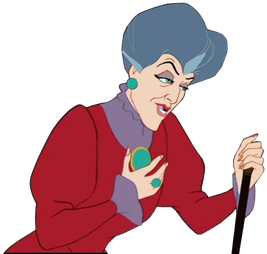
Lady Tremaine is a fictional character who appears in Walt Disney Productions' animated film Cinderella (1950) and its direct-to-video sequels Cinderella II: Dreams Come True (2002) and Cinderella III: A Twist in Time (2007). In the original film, Lady Tremaine is voiced by American actress Eleanor Audley, who would later voice Maleficent, the evil fairy, in Sleeping Beauty (1959) and Madame Leota in The Haunted Mansion. For the sequels and subsequent film and television appearances, Audley was succeeded by American actress Susanne Blakeslee who also currently voiced Maleficent, Cruella de Vil from 101 Dalmatians, and the Evil Queen from Snow White and the Seven Dwarfs. She is given the title of Lady in the original film.
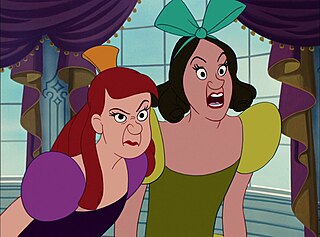
The ugly stepsisters are characters in the fairy tale and pantomime, Cinderella. They are the daughters of Cinderella's wicked stepmother, who treat her poorly. The "ugly stepsisters" have been in variations of the story from as early as researchers have been able to determine.
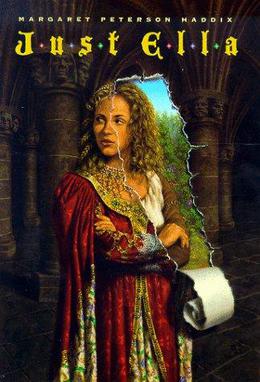
Just Ella is a novel written by Margaret Peterson Haddix and published in 1999 by Simon & Schuster. The story is a retelling of Cinderella with a feminist twist and a different version of the happily-ever-after ending. The plot revolves around Ella, a beautiful girl struggling to find the true meaning of happiness. A companion novel, Palace of Mirrors, was released in 2008.
Helen Deutsch was an American screenwriter, journalist, and songwriter.
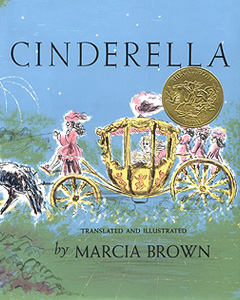
Cinderella, or the Little Glass Slipper is a book adapted and illustrated by Marcia Brown. Released by Charles Scribner's Sons, the book is a retelling of the story of Cinderella as written by Charles Perrault, and was the recipient of the Caldecott Medal for illustration in 1955. The book takes place in France, in a palace similar to other Cinderella stories.

Cinderella is an Italian-Japanese 1996 anime television series based on the fairytale of the same name by Charles Perrault and The Brothers Grimm. It was produced by Tatsunoko Productions and Mondo TV. The series originally aired from April 4 to October 3, 1996, comprising 26 episodes.

Hey, Cinderella! is a 1969 television special adaptation of the fairy tale Cinderella, produced by Muppets, Inc. in the United States and Robert Lawrence Productions in Canada, and featuring The Muppets created by Jim Henson, who also directed the special. It was written by Jon Stone and Tom Whedon, and scored by the music composer of Sesame Street, Joe Raposo. It featured Kermit in his first appearance as a frog, as well as Goshposh and Rufus and Splurge.

Cinderella is a 1914 silent film starring Mary Pickford, directed by James Kirkwood Sr., produced by Daniel Frohman, and released by Famous Players Film Company. The film is based upon the fairy tale Cinderella. The film was released on Blu-ray & DVD as a bonus feature from the DVD of Through the Back Door (1921). It was previously released on DVD by Alpha Video.
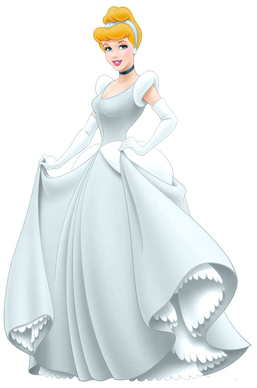
Cinderella is a fictional character who appears in Walt Disney Productions' animated film Cinderella (1950). In the original film, Cinderella is voiced by American singer and actress Ilene Woods. For the sequels and subsequent film and television appearances, Woods was replaced by American actresses Jennifer Hale and Tami Tappan, who provide the character's speaking and singing voices.
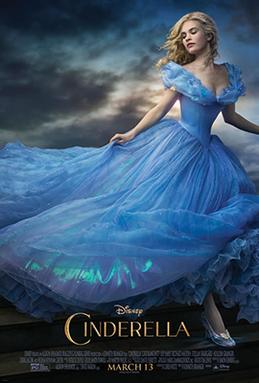
Cinderella is a 2015 romantic fantasy film directed by Kenneth Branagh from a screenplay by Chris Weitz. Co-produced by Walt Disney Pictures, Kinberg Genre, Allison Shearmur Productions, and Beagle Pug Films, the film is based on Charles Perrault's 1697 fairy tale "Cinderella" and also serves as a live-action adaptation of Walt Disney's 1950 animated film. Starring Lily James and Cate Blanchett as the title character and the evil stepmother Lady Tremaine respectively, with Richard Madden, Stellan Skarsgård, Holliday Grainger, Sophie McShera, Derek Jacobi, and Helena Bonham Carter in supporting roles.
Cinderella is a Disney franchise that commenced in 1950 with the theatrical release of the 1950 film Cinderella. The series' protagonist is Cinderella, who was based on the character of the same name from the Cinderella fairy tale.

"The Other Shoe" is the third episode of the sixth season of the American fantasy drama series Once Upon a Time, which aired on October 9, 2016.















